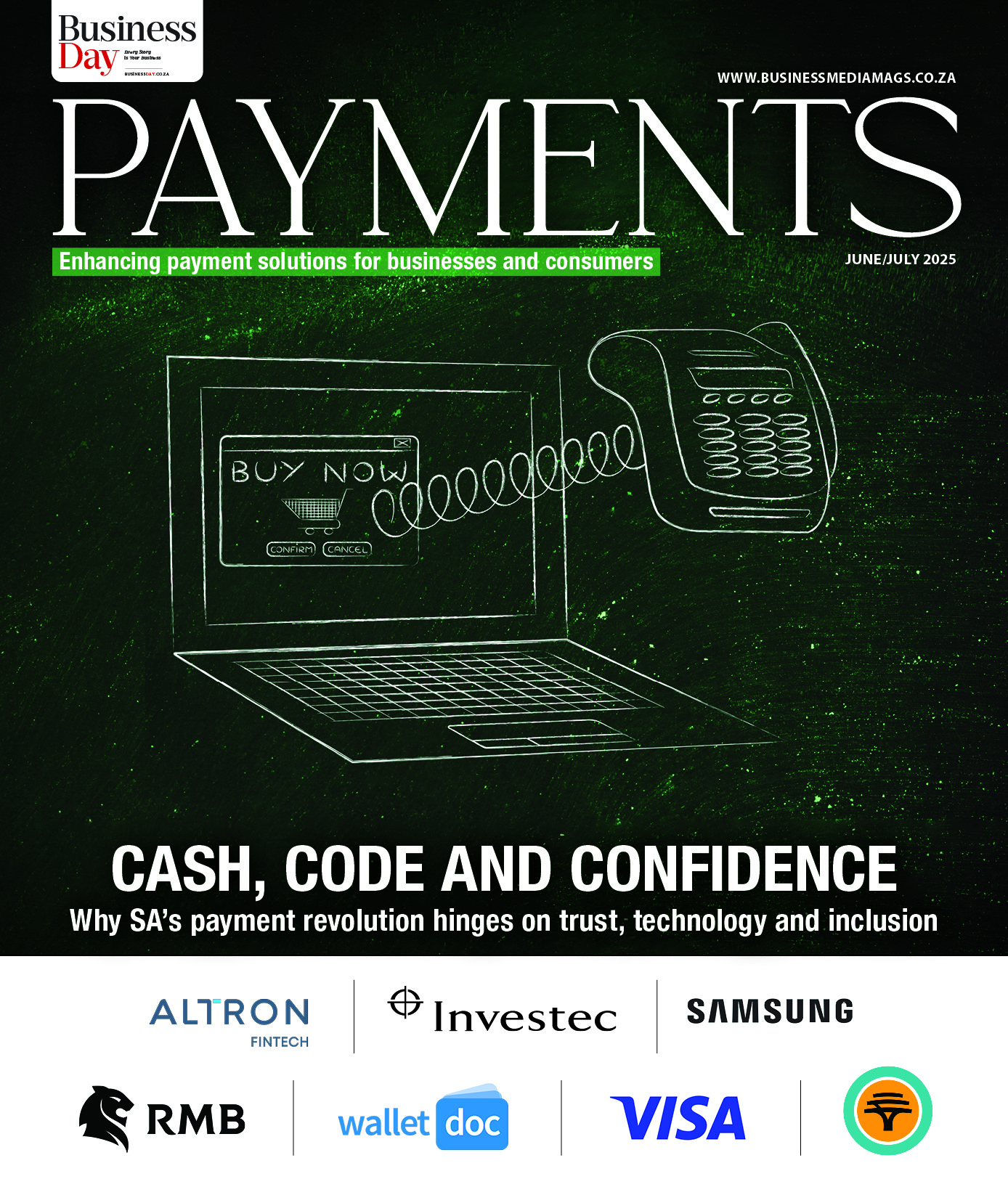Business Day Payments

FROM CASH TO CODE – South Africa’s payment shift
South Africa is at a pivotal point in the evolution of its payments landscape. We pioneered real-time clearing in 2006, have a strong, regulated banking system and a growing fintech ecosystem tackling local and global transaction challenges. Yet, we’ve fallen behind. The South African Reserve Bank estimates that 55 per cent of transactions still use cash, likely excluding the informal economy. This is due to poverty, low-value transactions, mistrust in the system, lack of convenience and affordability issues.
Progress is underway. The launch of PayShap, enabling real-time, low-value interbank payments, aims to reduce cash reliance and improve convenience. In this issue of Payments, we explore how this shift is reshaping the digital payments space for businesses and consumers. We also examine ways to reduce friction in the ecosystem, the role of Bitcoin in financial inclusion and the ESG impact of payments innovation. Looking continentwide, the Pan-African Payment and Settlement System is tackling the long-standing issues of high costs and currency complexities in cross-border trade, vital for economic resilience.
Other developments include innovations in of- online payments to address limited internet access, improvements in contactless experiences, faster payments for gig workers and earned wage access systems supporting lower-income earners and promoting financial literacy. Customer experience is central, especially with the rise of super apps, hugely successful in Asia and gaining traction here. Much of this progress is driven by fintechs. We profile three standout players in this issue, proof that while challenges remain, meaningful progress is being made.
Anthony Sharpe, Editor


 Sign-up and receive the Business Media MAGS newsletter OR SA Mining newsletter straight to your inbox.
Sign-up and receive the Business Media MAGS newsletter OR SA Mining newsletter straight to your inbox.